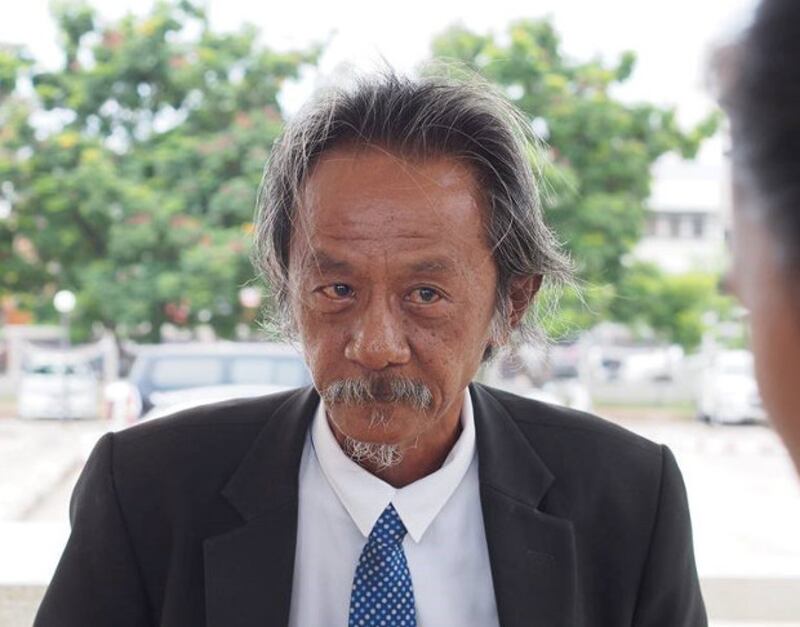A Thai court on Tuesday sentenced a college student to two and a half years in prison for violating the nation’s strict royal defamation law, in the first such case filed under Thailand’s new king.
Jatupat “Pai” Boonpattararaksa, a 25-year-old student activist at Khon Kaen University and a critic of Thailand’s military government, was arrested on Dec. 3 and charged under the so-called Lese-Majeste law after sharing on Facebook a BBC News profile of King Maha Vajiralongkorn that was deemed to be defamatory. Maha Vajiralongkorn became king on Dec. 1.
“The court sentenced Jatupat to 5 years but reduced it to two and a half years, because he pleaded guilty,” Jatupat’s lawyer, Krisadang Nutcharas, told BenarNews at the courthouse in northeastern Khon Khaen province, 450 km (281 miles) northeast of Bangkok.
A two-judge panel handed down the verdict during a closed-door session that was attended by Jatupat’s parents, his legal team and a few Thai officials.
Afterwards Jatupta’s father, Viboon, told reporters outside the courthouse that his son chose to plead guilty in the hopes of getting a lenient sentence.
“My son did not receive justice,” he said. “Pai pleaded guilty because, as we discussed, the court promised him a lenient punishment.”
Jatupat, who appeared calm and relaxed during the sentencing, will serve two and a half years, minus his almost eight months of detention since Dec. 29, 2016, his lawyer said.
Thousands of people on social media had also shared a link to the BBC report.
Last year, police officials in Khon Khaen said they might use Jatupat’s case as a template to prosecute more people violating the law on social media.
Under the Lese-Majeste law, one count of defaming, insulting or threatening the Thai royal family carries a penalty of three to 15 years in prison. But it is common for Thai courts to reduce sentences after receiving guilty pleas from defendants.
“It appears that Jatupat was singled out, from thousands of people who shared the BBC article, and prosecuted for his strong opposition to military rule than any harm incurred by the monarchy,” Brad Adams, Asia Director at Human Rights Watch said in a statement condemning Tuesday’s verdict.
“His guilty verdict and jail sentence show yet again how Thailand’s draconian ‘insulting the monarchy’ law has been misused to punish dissenters,” Adams said.
Since the military seized power in a coup in May 2014, at least 82 people have been charged under Lese-Majeste, according to iLaw, a rights advocacy group.
Those cases so far have resulted in 38 convictions – including the Jatupat case – and seven acquittals, iLaw said.
In June, a Bangkok military court handed the longest Lese-Majeste prison sentence, ordering a man to serve 35 years after the court reduced his original 70-year sentence.
“A chokehold on freedom of expression is being created in the name of protecting the monarchy,” Adams said.

Viboon Boonpattararaksa, father of Jatupat Boonpattararaksa, a university student convicted of violating Thailand's strict Lese-Majeste law, talks to reporters at the Khon Khaen criminal court, Aug. 15, 2017. [Nontarat Phaicharoen/BenarNews]
